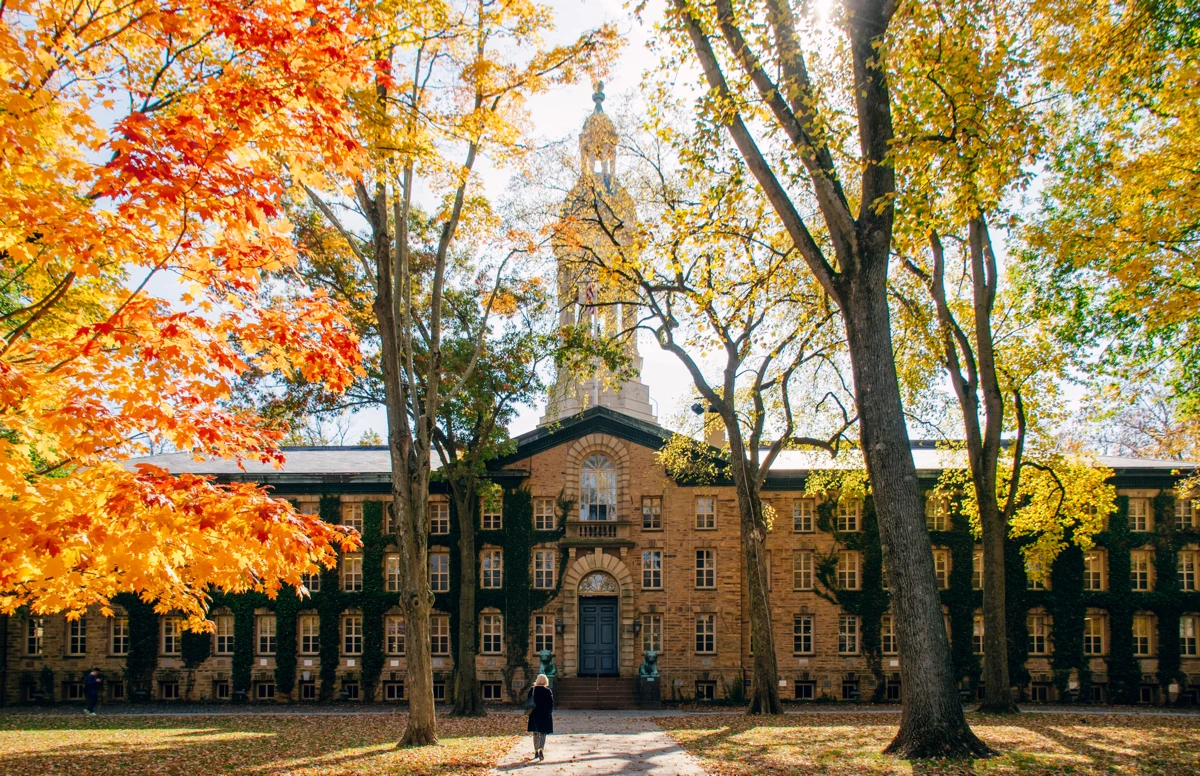Being raised by rich parents is not meritorious

I think this is Princeton University, one of the Ivy League schools from the study. That's what the description says. I've never set foot on its campus to say for sure. Photo by Tim Alex on Unsplash.
As I wrote earlier this month, legacy and donor admissions aren't merit-based either. It's true that most college students attend big state schools and not the dozen or so highly-selective universities known as the Ivy Plus1 schools. But it's also true that these twelve universities produce and reproduce the bulk of our country's ruling class.
Diversifying these schools will help diversify our ruling elite. I think that diversification will lead to better policy.
New research (PDF) from from Raj Chetty, David J. Deming, and John N. Friedman2 shows us how large an impact these schools have on our political, legal, and economic systems. They also offer some ideas for leveling the playing field. One of their key findings (PDF):
Less than one percent of Americans attend these 12 colleges, yet they account for 15% of those in the top 0.1% of the income distribution, a quarter of U.S. Senators, half of all Rhodes scholars, and three-fourths of Supreme Court justices appointed in the last half-century).
In other words, we should care a whole lot about who gets in to these schools because these schools determine who runs the world.3 So who gets in? Again, from the Key Findings summary:
[J]ust 10% of students scoring at the 99th percentile on the SAT/ACT from middle-class families attend an Ivy-Plus college, compared with 40% of similarly high-scoring students from families in the top 1 percent of the income distribution.
Ivy Plus kids are, for the most part, rich kids. Yet it's not because rich kids are smarter. They're better resourced. Yet the admissions process at these schools doesn't really take that into account. Another key finding:
Higher admission rates among students from high-income families are driven by three factors: legacy preferences for children of alumni, higher non-academic ratings, and athletic recruitment.
Ivy Plus universities produce high-earning graduates who:
- can afford to enroll their kids in a sport4;
- can afford to send their kids to private schools that have a wider range of extracurricular programs, and faculty that knows how to guide kids into elite colleges; and
- improve their kids chances of admission by a factor of five, because they're the child of an alumnus.
You read that correctly. Children of alumni are five times more likely to be admitted to an Ivy Plus university than comparable students whose parents did not attend the institution. And while these students are indeed stellar, they aren't so stellar that they'd be clear picks at any school.
Although children of alumni at a given Ivy-Plus college are much more likely to be admitted at that college, they are no more likely than non-legacies to gain admission at other Ivy-Plus colleges, indicating that they do not have stronger overall credentials.
Graduates of these schools succeed in life. People assume that if you went to Harvard, you must be the smartest person in the room. Attending an Ivy Plus school is one of the few ways left to ascend from middle class to upper class — assuming your middle class behind can even get in the door, which is unlikely. Instead, Ivy Plus schools keep upper class students in the upper class.
It's not completely hopeless, however. Chetty, et al. propose three changes that would let more poor and middle class students — who are disproportionately black and brown —into these institutions.
- Eliminate legacy preferences
- Consider class when
evaluating non-academic characteristics in better context to account for the effects of privilege
; and - Change athlete recruitment to recruit
more uniformly across the parental income distribution.
This, researchers argue, would diversify the student bodies of elite universities in much the same way affirmative action programs did until the Supreme Court struck them down.
Hat tip: The Atlantic via Molly Wood.
-
This includes the eight Ivy League schools of Brown, Columbia, Cornell, Darthmouth, Harvard, University of Pennsylvania, Princeton, and Yale, plus the University of Chicago, Duke, Stanford, and MIT. ↩
-
Affiliated with Harvard, Harvard, and Brown, respectively. ↩
-
Yes, world. I say this because the political and economic climate in the United States have an outsize effect on the rest of the planet. Also, these universities also educate portions of other country’s wealthy classes. ↩
-
The United States has slashed sports programs at public schools to the point where it's affecting the health of kids. See The Income Gap Is Becoming a Physical-Activity Divide for more. ↩